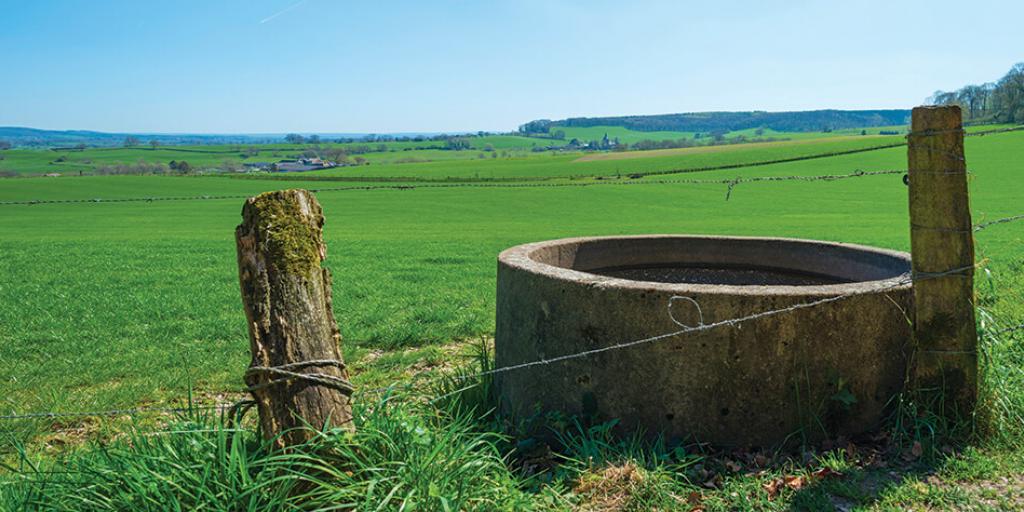
Lessons from My Grandfather's Cistern
When I was a child, my family frequently visited my grandparents’ home. Each time we did, my grandfather would have some task for us to do. My brothers and I never really minded the work, though, because he would always make it fun and teach us something deeper in the process. I cannot even count the number of projects we worked on together, but they are now collectively treasured memories of a man who taught me much. One such project was cleaning out the rainwater cistern.
A cistern collects rainwater for many uses, including for watering a garden and even some household needs. My grandfather’s cistern was quite large, big enough that we would occasionally climb inside of it to perform routine maintenance on the walls. First, we would clean the walls of the cistern using bristle brushes with a smelly, chlorine bleach cleaning mixture that my grandfather made. Between our vigorous scrubbing with those sturdy brushes and the reaction of the chlorine solution dissolving the residue on the walls, we scoured every inch of that cistern. When I asked why we needed to clean every nook and cranny of the cistern like this, my grandfather explained that, if we did not clean every corner, then we might miss microscopic bacteria that would make the water unsafe to use or drink.
After we scrubbed the walls, we then systematically examined the inside of the cistern for cracks. We needed to make certain that the water collected in the cistern would not slowly seep out of the chamber, which would waste water and also expand the crack over time and damage the cistern beyond repair.
I learned a lot from helping my grandfather clean that cistern. He taught me that we should take care of our tools and be good stewards of our property. He taught me that if we are diligent in our maintenance, then our tools and property will take care of us. When we brushed the walls of the cistern, we did so vigorously because we wanted to rid the chamber of all potential contaminants.
On a deeper level, that experience taught me the importance of inward examination—examining the heart. King David spoke about this in Psalm 51:6–7: “Behold, You desire truth in the inward parts, and in the hidden part You will make me to know wisdom. Purge me with hyssop, and I shall be clean; wash me, and I shall be whiter than snow.” People knew that Hyssop has cleansing and medicinal properties. They also used the stalks as brushes.
God provides us an outstanding tool to help clean up and repair the “inner man”—His word, the Holy Bible, inspired to bring us closer to Him. It can be a wonderful tool for self-examination, but just like the brush we used to clean the cistern, it works best when used vigorously—with great effort. We should brush and cleanse our hearts without fear, an emotion that can keep us from really looking into the nooks and crannies of our inner selves. My grandfather taught me that, just as a cistern needs regular and detailed maintenance, so we need consistent and thorough brushing from a source ideal for self-repair.
Order your free copy of The Bible: Fact or Fiction? and be sure to check out the latest videos and articles available right here at Tomorrow’s World.
Stay up to date with our Weekly Digest Email!
Tomorrow's World ComMentary Podcast
Subscribe to Tomorrow's World Commentary podcasts on iTunes and Google Play!



